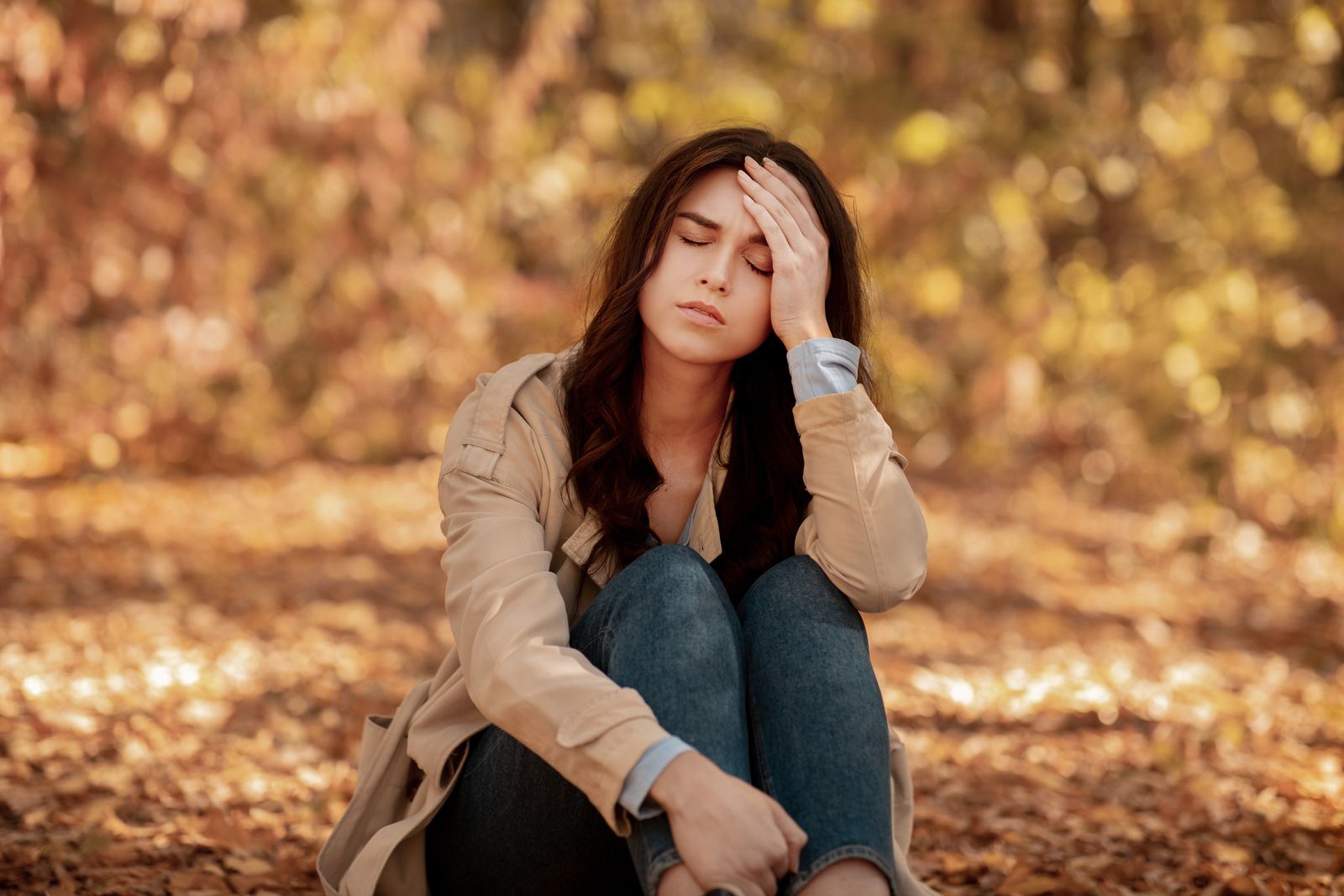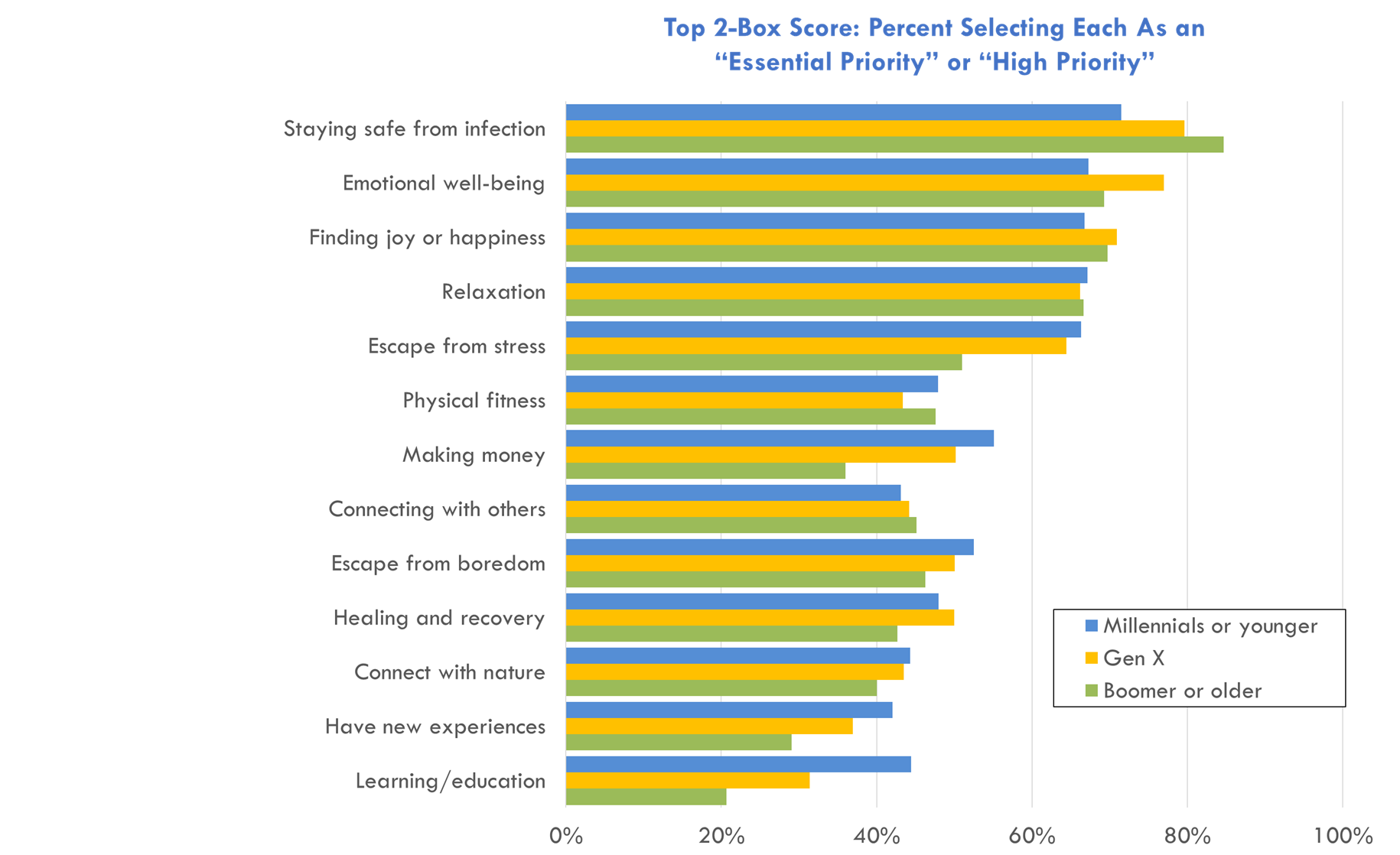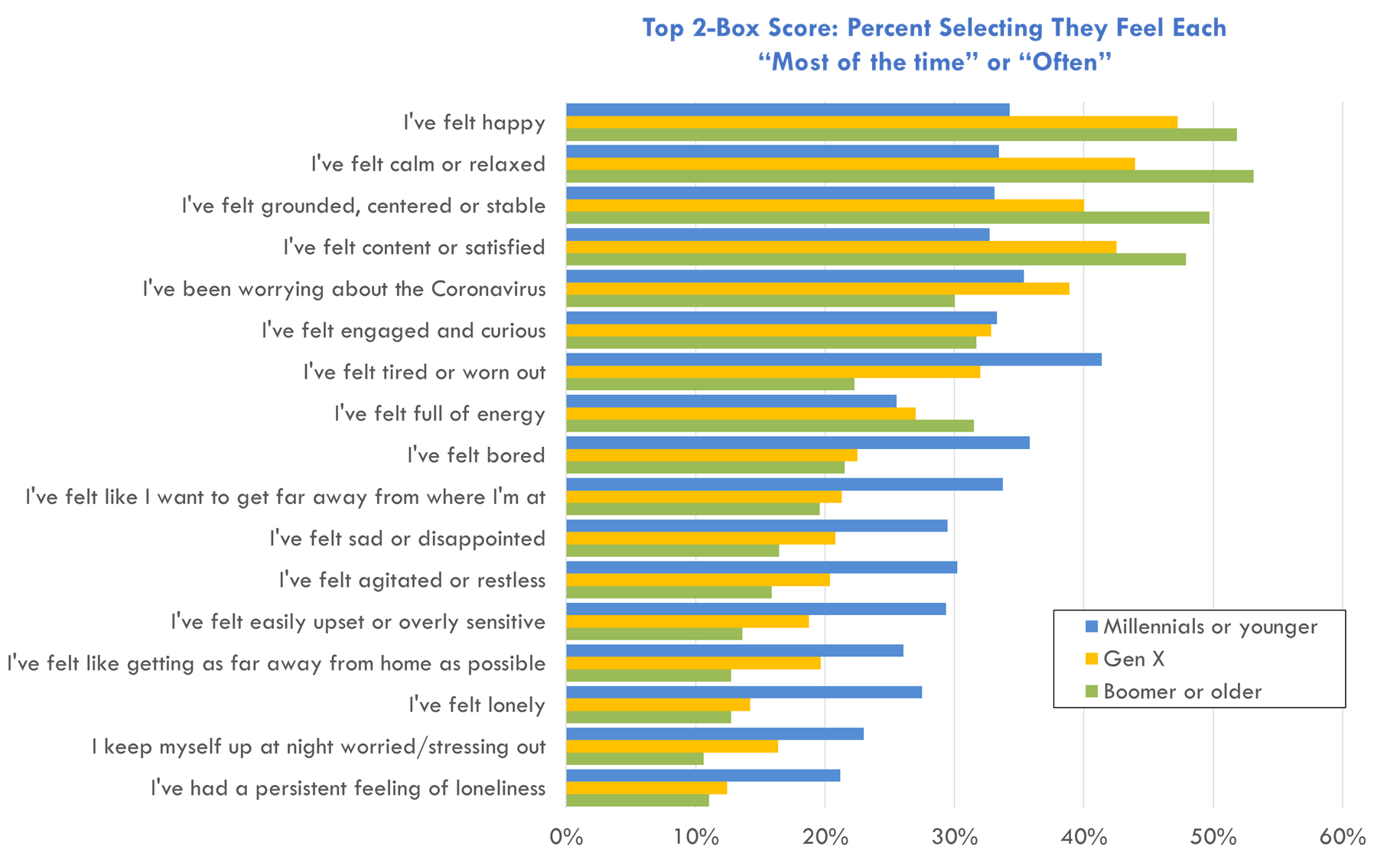The Rough Road for Millennials During the Coronavirus Pandemic

It is no secret that the coronavirus pandemic has taken a toll on our lives, our priorities and our emotions. In the 34th wave of our Coronavirus Travel Sentiment Index Study, we asked American travelers about their lifestyle priorities over the next six months and how they’ve been recently feeling.
When asked how they will prioritize each of several aspects in the next six months—similar to when we have asked this question in the past—staying safe from infection is what American travelers will most prioritize, with 78.6% who currently say that it is a high or essential priority. And this is followed by emotional well-being, finding joy, relaxation and escape from stress—all of which are aspects that travel can certainly deliver.
In looking at this recent data by generation, Baby Boomers are the likeliest to prioritize staying safe from infection in the next six months, while Millennials are least likely to do so. Meanwhile, when it comes to escaping stress and making money, these are much higher priorities for Millennials than for Boomers. This perhaps is not so surprising, as Millennials appear to be the most stressed out generation. On a 10-point scale from “1=No stress” to “10=Severe, frequent stress,” Millennials reported an average daily stress level of 6.2 in the last month, while Baby Boomers reported a lower average stress level of 4.7. Millennials are more stressed, and escaping stress in the next six months is a high priority.
During the last month, American travelers have more commonly experienced positive emotions. They reported feeling happy, calm or relaxed, grounded and content or satisfied “most of the time” or “often.” Meanwhile, negative leaning emotions, such as staying up at night worrying and persistent loneliness, are less prevalent.
There are certainly generational differences when it comes to these recent feelings and emotions. Baby Boomers were more likely to feel positive emotions—including happy, calm, grounded and content—while Millennials, who experience higher levels of stress, were more likely to report recently feeling negative emotions. In addition to their higher propensity to feel worry and loneliness, Millennials were also likelier than their older counterparts to feel tired or worn out, bored, like they want to get away from where they are, sad, agitated, easily upset and like they want to get as far away from home as possible.
While the coronavirus has presented many challenges, it appears that Millennials have been experiencing an especially tough time. In addition to their propensity to feel negative emotions in the past month, Millennials have also experienced sleep disturbances or changes in their sleep pattern since the emergence of the coronavirus. Over half of Millennials “sometimes” or “frequently” experienced sleep disturbances since the onset of the pandemic, compared to one-third of Baby Boomers (51.3% vs 32.3%).
However, despite the rough road for Millennials, there is a glimmer of light at the end of the tunnel. Millennials are more optimistic about the coronavirus situation, with a higher likelihood than Baby Boomers to agree that “things are going to get better soon” (38.4% vs. 30.0%) and that the situation will be resolved before the end of the year (22.2% vs. 9.5%).




